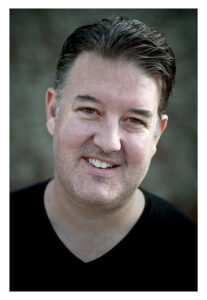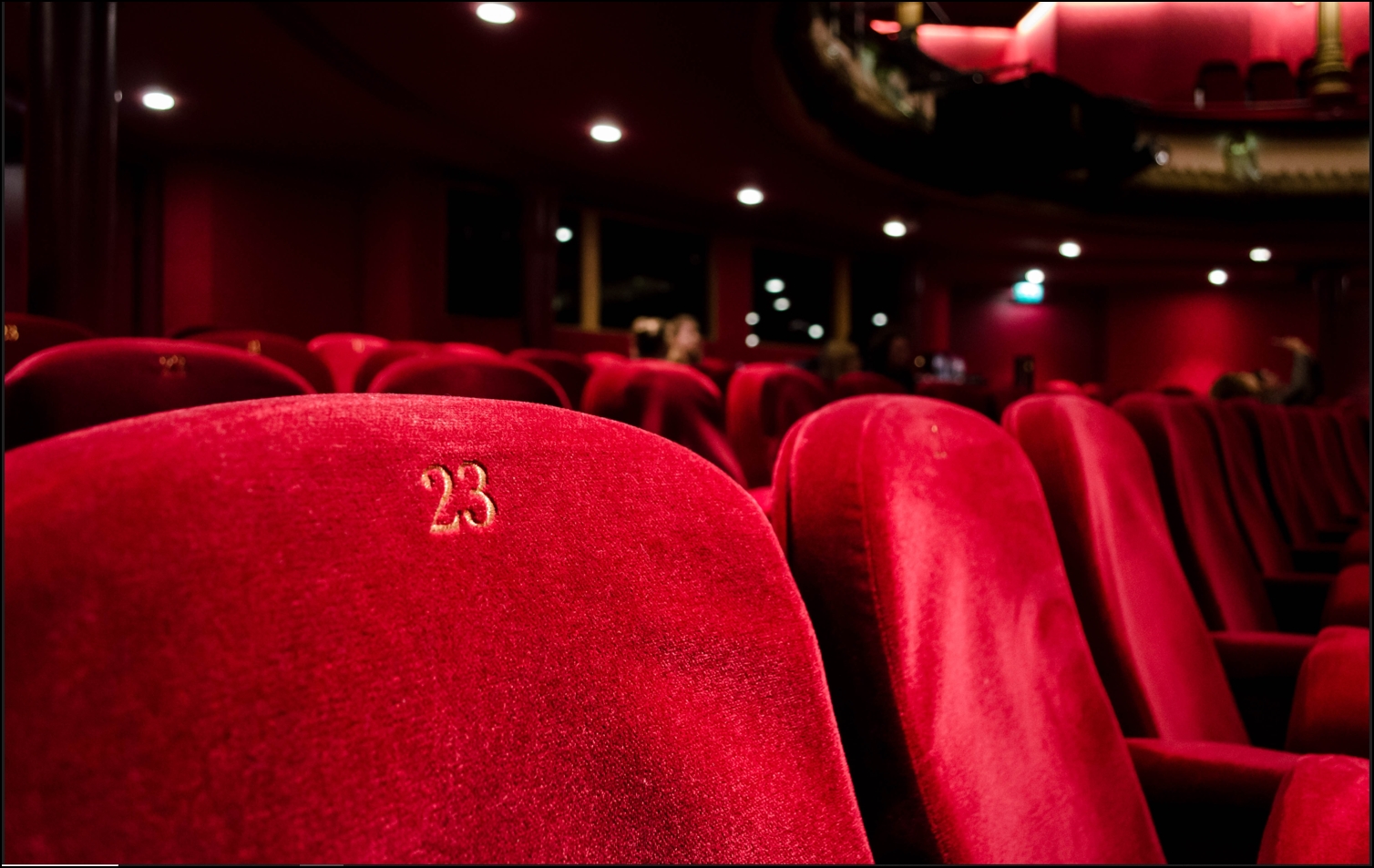Aisle Seat Review and our readers are enjoying a new series of question-and-answer interviews with prominent Bay Area theater people.
Our goal is not to subject you the reader to extended portentous sermons of the guest’s views on Russian translations of lesser-known Mamet flash drama (is there such a thing?)
Too often the people who guide and make theater in the Bay Area are behind the scenes — fast-moving denizens of the curtain lines who mumble into microphones while invariably (always excepting Carl Jordan’s beret collection…) dressed head-to-toe in black. These interviews allow you, the reader, to get to know these amazingly talented people a bit more, as…people.
Offering some personal and professional insights: with a heavy dash of humor, this is Aisle Seat Review’s Not So Random Question Time.
***

Actor, magician, and tech entrepreneur Ron Severdia may be the most diverse theatrical talent in the North Bay. His solo performance of A Christmas Carol is a must-see. Last year he won critical acclaim for his performance in Every Brilliant Thing at Left Edge Theatre. He found time in his busy schedule to chat with ASR.
ASR: Your background?
RS: I was born and raised (mostly) in Marin County. I started as a magician when I was around seven and got into theatre shortly after. I’ve been performing on stage and in film ever since.
ASR: How did you get started in theater?
RS: I started doing magic when I was young and I was a voracious reader. I read everything about Houdini I could get my hands on. Houdini told a story of where he got his name—a magician he admired named Jean-Eugène Robert-Houdin, who famously said “A magician is an actor playing the part of a magician.” This fascinated my young mind and began my jump into the world of acting.
ASR: What was the first play you performed in or directed for a paying audience?
RS: My first acting gig was a film, not a play. My fifth grade teacher was teaching about the Revolutionary War and working with our class to product a film. The story was an old man and his wife who’d lived through the war telling their grandchildren about it through flashbacks. I was the old man with old makeup and all. There was a big night where the whole school, including parents and teachers, came to watch the film. This was my big debut, but I was sick that day and my parents wouldn’t let me go. To this day, I’ve never seen that film, but when I went back to school I heard how “amazing” my performance was.
ASR: How many theater companies have you been involved with?
RS: Dozens. In the Bay Area, London, Prague, and various other places.
ASR: When was your present company formed?
RS: I started the Modern Shakespeare Company (https://www.modernshakespeare.com) maybe 20 years ago, but it’s just my thing and there’s only been one so-called performance.
ASR: Did you anticipate that it would become as successful as it has?
RS: Um, no.
ASR: Does your company have a special focus, i.e., genre/historical period, contemporary, experimental, emerging playwrights, etc?
RS: Making Shakespeare and the classics accessible. I really took an interest in director Buzz Goodbody. I was intrigued by her approach at the RSC. She took over their costume shed (“The Other Place”) and made it into a successful experimental theatre.
The seminal Macbeth with Ian McKellen and Judi Dench premiered there and so did Ben Kingsley’s Hamlet, during which she committed suicide at the age of 28—a metaphor of Haley’s Comet.
ASR: Who has had the largest impact on your professional development in the theater?
RS: No one single person, rather a variety of really smart people—many of whom were teachers during my time at ACT (Rod Gnapp, Ken Ruta, Larry Hecht) or RADA (Andrew). I always hope to learn something from the directors I work with and my fellow actors.
ASR: What are some of your favorite dramas? Musicals? Comedies?
RS: I’ve done some musicals in the past (the last one was Cabaret at CenterRep a few years back), but I’m kinda done with those.
Some of the dramas I like and would like to do someday are Cyrano, Of Mice & Men (Lenny, of course), and Nick Dear’s adaptation of Frankenstein.
As for comedies, I really enjoyed Hangmen (McDonough’s brilliant black comedy), The Play That Goes Wrong, or Ayckbourn’s trilogy The Norman Conquests—all of which I’d love to do.
ASR: Name three all-time favorites that your company has produced.
RS: My last show at Left Edge Theatre was a solo show called Every Brilliant Thing, which tells the story of a young boy as he grows up trying to cope with his mother’s depression and suicide attempts. It’s funny, sad, and presents a difficult subject in a really moving way.
I performed as Miles in Left Edge Theatre’s world premiere of Sideways in 2017, which had an awesome cast and collaborated with author Rex Pickett. It was great to share this story that has had an indelible impact on the wine industry.
ASR: What are some of your least favorite plays? Care to share titles of those you would never produce—or never produce again?
RS: Neil Simon. I’ve felt this way for many years, which actually led to me taking a role in the world premiere of Dale Wasserman’s play Premiere. It’s the story of a playwright so successful he gets bored with writing one Broadway hit after another so he decides to write a play in verse and pass it off as a long lost play by William Shakespeare. When Dale’s widow flew out to see the play, she told me how Dale and Neil Simon were great friends and, ironically, the character I was playing (the playwright) was really based on Neil Simon.
ASR: Which play would you most like to see put into deep freeze for 20 years?
RS: Oooooh. There’s a long list. Let’s start with Our Town and the entire Andrew Lloyd Webber canon.
ASR: Which rare gems would you like to see revived?
RS: Definitely The Norman Conquests or even a solid production of Deathtrap (which is really rare).
ASR: What is Shakespeare’s most underrated play? Why?
RS: Hands down, King John. It’s a great play that can be done with a small cast in a small theatre. The text can veer off course a little, but nothing a director/dramaturg couldn’t sort out. There are some great verbal exchanges in there.
ASR: Shakespeare’s most over-performed play?
RS: A Midsummer Night’s Dream. It’s easy to do, especially for kids and newbies to Shakespeare.
ASR: If you had to do a whole season performing technical work—sets, lights, projections, sound, props, costumes—which would it be and why?
RS: Probably sound design. Maybe set design. To me, both are a little more conceptual and appeal to me more than the other aspects.
I think I’d be scared of any animal smaller than a horse being scaled up…
ASR: As hard as it may be to pick just one, can you name a Bay Area actor who you think does amazing work?
RS: Very hard. Jarion Monroe, Julian Lopez-Morillas, Stacy Ross. There are so many talented people in the Bay Area.
ASR: How do you warm up before a performance? How do you relax after?
RS: First, the typical vocal and physical warm-ups to get things going. Then I have show-specific warm-ups depending on the show. It might be songs that evoke for me the spirit of the play or it might be speeding through the lines of a particularly challenging part. Followed by an espresso.
After the show, it’s all about trying to wind down. That takes me longer when I have smaller parts in the show. For larger parts, winding down is easier due to the vocal/physical demand.
ASR: If someone asked to be your apprentice and learn all that you know, what three things would you tell them are essential?
RS:
1. Work constantly on your instrument, mentally and physically.
2. Study the classics. Mine them for gems. They’re classics for a reason.
3. Become self-aware by learning the connection between how you think you’re perceived and how you actually are.
ASR: Do you have a “day job?”
RS: Yes, I’m the head of product design for a Silicon Valley technology company.
ASR: What are your interests outside of theater?
RS: I created a few theatre related apps that I work on outside of theatre:
Shakespeare Pro: An app containing the complete works, glossary, search and a variety of other features to help students, teachers, actors, directors and other theatre professionals. https://apps.apple.com/us/app/shakespeare-pro/id341392367
Soliloquy Pro: An app to manage your monologues and help you memorize them. Search from over a thousand classic pieces and share them with others. https://apps.apple.com/us/app/soliloquy-pro/id1029313343
Scriptigo Pro: An app to manage file/theatre scripts, take notes, and share with others. https://apps.apple.com/us/app/scriptigo-pro/id1444743519
ASR: A fashion accessory you like better than others?
RS: A simple black cotton t-shirt.
ASR: What would be the coolest animal to scale up to the size of a horse?
RS: I think I’d be scared of any animal smaller than a horse being scaled up that big! Good premise for a horror flick though.
ASR: Theater people often pride themselves on “taking risks”—have you any interest in true risk taking, such as rock climbing, shark diving, bungee jumping, skydiving?
RS: Meh. I’ve done some of those things, but I’m not an “adrenaline junkie” by any stretch.
ASR: Favorite quote from a movie or stage play?
RS: Movie: “It’s not the years, it’s the mileage.” — Indiana Jones (gets more and more relevant as I get older)
Stage Play: “It’s discouraging to think how many people are shocked by honesty and how few by deceit.” —Charles Condomine (Blithe Spirit)
-30-
 ASR Executive Editor Barry Willis is a member of the American Theatre Critics Association and president of the SF Bay Area Theatre Critics Circle. Contact: barry.m.willis@gmail.com.
ASR Executive Editor Barry Willis is a member of the American Theatre Critics Association and president of the SF Bay Area Theatre Critics Circle. Contact: barry.m.willis@gmail.com.
